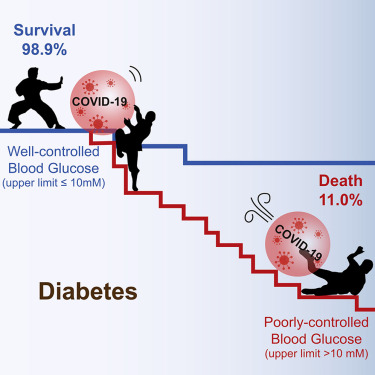A diabetic foot is any pathology caused due to peripheral arterial disease (PAD) affecting the feet in diabetes mellitus. It is a long-term complication of diabetes mellitus. An uncontrolled Diabetes leads to various complications like sensory neuropathy, osteoarthropathy diabetic foot ulcer and changes in the arch of foot. Loss of sensation in foot is the key to diagnose diabetic foot syndrome in diabetic patient.
The feet’s insensitivity to pain can easily be established by 512 mN pinprick stimulation. Research revealed that the lifetime incidence of foot ulcers within the diabetic community is around 18% and may become as high as 30%. In uncontrolled diabetes, peripheral nerve dysfunction causes poor blood circulation to the extremities.
Vitamin D deficiency is related with diabetic foot infections which in turn has increased the risk of amputations and deaths.
Peripheral Vascular disease:
Due to less sensitivity to pain, the wound or the injury may go unnoticed resulting in diabetic foot ulcer. When wounds take a long time to heal, infection may spread to bones and joints and lower limb wherein amputation may be necessary.
Foot infection is the most common cause due to poor circulation leading to gangrene and further amputation of foot in people with diabetes. There may be excess pressure on one part of the foot resulting in deviation of the arch of foot and arthropathy.
Athlete’s foot:
In Athlete foot, fungus causes itching, inflammation, redness, and cracking. Germs penetrate through the cracks in your skin and cause an infection. Medicines destroying the fungus can treat athlete’s foot.
Fungal infection of nail:
Nails that are infected with a fungus may become discolored (yellowish-brown), brittle and thick may separate from the rest of your nail. The dark and moist environment of shoes can help a fungus grow. Any injury to your nail can also lead to a fungal infection. Fungal nail infections are stubborn to treat. in such cases antifungal treatment may be required for over couple of months.
Callosities and corns:
Corns and callosities are also possible in Diabetic foot resulting in infections. Bunions result when the greater toe is bending on inner side of the smaller toe, thus resulting in difficulty in walking.
Ingrown toenails:
They occur when the edges of the nail grows into your skin. They cause lot of pressure and pain along the nail edges, redness, swelling, pain, drainage, and infection.
Hammertoe:
This is yet another condition where the muscles of the area become so weak that the toe curls below the foot.
All these above mentioned infections are trigger to uncontrolled diabetes.
Complications of diabetic foot problem:
- Skin and bone infections. A small cut or wound or any injury can lead to infections. Nerve and blood vessel damage are more likely. Infections are usually treated with antibiotics.
- Abscess. Infections penetrate into bones or tissue and create a small bag of pus called an abscess. The most common treatment is to remove the abscess. It may require removal of some bone or tissue, but newer methods, like oxygen therapy, are also very helpful.
- Gangrene. There is poor blood supply to your fingers and toes. When blood flow is cut off, tissue dies. Treatment given is usually oxygen therapy or surgery to remove the affected area.
- Deformities. Nerve damage can weaken the muscles in your feet and lead to deformities like hammertoes, prominent metatarsal heads, claw feet and pes cavus.
- Charcot foot. Diabetes weaken the bones in your foot to the extend that they break. Nerve damage can reduce the sensation and prevent you from realizing it. You keep walking on broken bones unaware and your foot will change shape.
Signs of diabetic foot:
- Changes in skin colour of foot
- Changes in temperature of foot
- Bad odour from the foot
- Corns and callosities
- Gangrene
- Foot ulcer
- Ingrown nail.
- Fungal changes between the toes
Management of Diabetic foot:
- Take care of yourself and diabetes. Follow up with your Diabetologist‘s advice regarding plate diet, nutrition, exercise and medication. Monitor your blood sugar levels regularly once every week.
- Wash your feet with warm water using a mild soap. Dry your feet well properly between your toes.
- Check your feet for sores, blisters, redness, calluses, or any other problems. If you have poor blood flow, it is important to check your feet daily.
- Moisturizer: If the skin on your feet is dry, try keeping it moist by applying lotion after you wash and dry your feet.
Nail hygiene:
- Use corn caps for removal of corns or callosities. Trim your toenails with a nail cutter or clipper. After clipping, smooth the toenails with a nail filer.
- Always wear closed-toed shoes or slippers. Do not wear open sandals and do not walk barefoot.
- Always wear socks or stockings. Wear socks/ stockings which are soft and elastic and can fit your feet well.
- Wear shoes that fit well. Buy Canvas or leather shoes which are comfortable for use. Extra wide shoes are usually preferred due to foot deformity for the comfort level.
- Always check the inside of shoes to make sure so that no objects are left inside.
- Protect your feet from extreme heat and cold.
- Keep the blood flowing to your feet. Keep your feet up while sitting, move or wiggle your toes and ankles several times a day, and don’t cross your legs for long periods to avoid numbness of foot as circulation reduces.
- Avoid smoking. Smoking can interfere with blood flow making it worse.
- If you have a foot problem that gets worse or won’t heal, contact your diabetologist.
- Improving lifestyle helps in reducing Diabetes and stress. Proper sleeping pattern helps reduce anxiety and depression in Diabetes.
- Medicines like metformin, glimeperide, gliclazide, insulin injections must be taken in timely manner to avoid complications.
- Avoid drinking alcohol.
- Mantain your bodyweight. Obesity is one of the factors resulting in diabetes complications.
Conclusion:
Taking care of your foot is so very important as foot is integral part for walking. Hope the significance of maintaining foot hygiene is conveyed to you in a simple manner and it’s complications. Diabetic foot needs utmost care so as to avoid ulcers, injuries and other complaints. Hence always take care of your foot so as your Diabetes.










